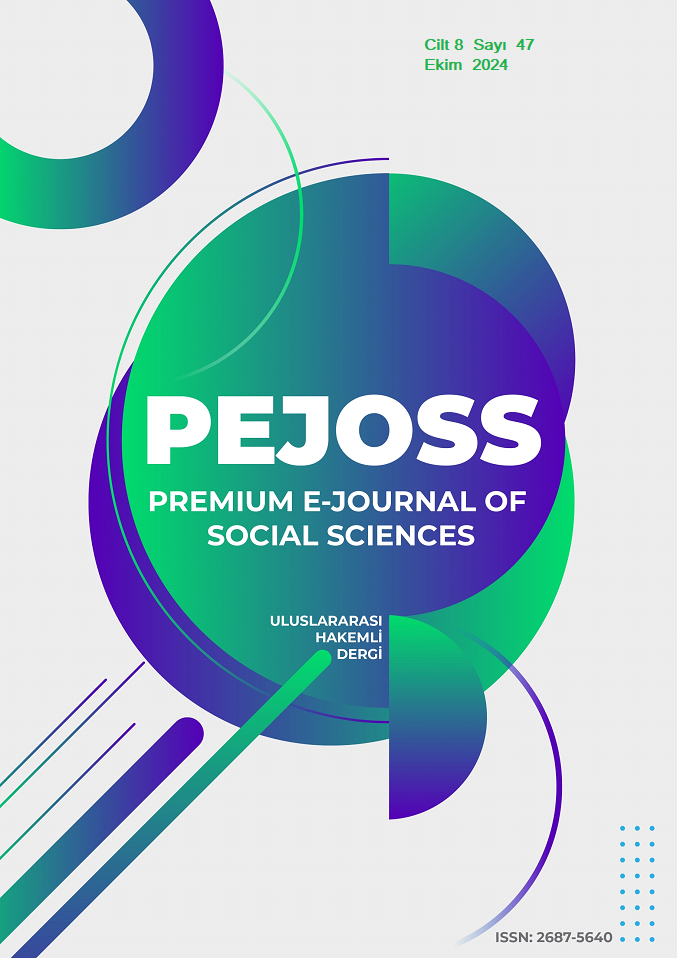The Impartiality of the Disciplinary Investigation and The Problem of Impartiality in the Procedure of Appointing Disciplinary Investigators for Public Officials Working in Higher Education Institutions
DOI:
https://doi.org/10.5281/zenodo.14020762Keywords:
Disciplinary investigation, impartiality, public servantsAbstract
Public officials have certain responsibilities based on legislation. When public officials fail to fulfil these responsibilities, disciplinary penalties come into effect. Disciplinary penalties are legally possible after a disciplinary investigation. There are some principles that ensure the impartiality of the disciplinary investigation. These are: Confidentiality of the investigation, independence of the investigation, the investigator being an equal or superior authority and impartiality of the investigation. There have been cases where the disciplinary investigation and the persons who impose punishment as a result of the investigation are the same, and this situation has been the subject of litigation in administrative judgement. In order for the disciplinary investigation to be conducted impartially, the disciplinary supervisor and disciplinary boards must be in a position to judge the relevant incident objectively. Therefore, the disciplinary supervisor and the members of the disciplinary board should not have feelings of affection or enmity with the public officials against whom disciplinary proceedings are initiated. In order to ensure impartiality in the investigation, it may be ensured that the investigation is carried out by investigators to be assigned from other units. The appointment of an investigator from another unit can be made the rule rather than the exception in order to ensure the impartiality of the disciplinary investigation. In this way, the possibility of the investigator being related to the action or situation subject to the investigation may be eliminated and the investigator will be able to conduct the investigation without being under the influence of fear and emotional pressure that may be brought by conducting the investigation of a colleague. In the case of higher education institutions, considering the technical structure of these institutions, disciplinary investigations can be carried out by a common unit in order to carry out the investigation processes in a healthier way.
Downloads
References
Sayılı Yükseköğretim Kanunu, (1981). https://www.mevzuat.gov.tr/mevzuatmetin/1.5.2547.pdf
sayılı Genel Kolluk Dı̇sı̇plı̇n Hükümlerı̇ Hakkında Kanun Hükmünde Kararname’nı̇n Kabul Edı̇lmesı̇ne Daı̇r Kanun, (2018). https://www.mevzuat.gov.tr/MevzuatMetin/1.5.7068.pdf
Akan, D. (2016). Akademisyenlerin inceleme/soruşturma görev zorluklarına ilişkin görüşleri/opinions concerning academicians’ ınvestigation/query assignment difficulties. Mustafa Kemal Üniversitesi Sosyal Bilimler Enstitüsü Dergisi, 13 (33), 212-226.
Ankara 8. İdare Mahkemesi, (2011). 2011/1366 sayılı kararı.
Boz, S. S. (2017). Memur disiplin hukukuna hâkim olan temel ilkeler. Selçuk Üniversitesi Hukuk Fakültesi Dergisi, 25 (2), 15-41.
Çınarlı, S. (2011). Yükseköğretim kurumlarında disiplin soruşturması sorunu ve Alman disiplin mahkemeleri modeli önerisi. Selçuk Üniversitesi Hukuk Fakültesi Dergisi, 19 (1), 39-63.
Danıştay 8. Dairesi, (2004). E.2004/3334, K.2005/5118 sayılı kararı.
Danıştay 12. Dairesi, (2007). E. 2005/6776, K. 2007/6383 sayılı kararı.
Danıştay 12. Dairesi, (2016). E. 2012/13342, K. 2016/2175 sayılı kararı.
Danıştay 12. Dairesi, (2017). E. 2016/1975, K. 2017/3074 sayılı kararı.
Devlet Memurları Kanunu, (1965). https://www.mevzuat.gov.tr/mevzuat?MevzuatNo=657&MevzuatTur =1&MevzuatTertip=5
Duman, B. (2021). Yükseköğretim ceza ve disiplin soruşturmaları, Seçkin Hukuk.
Kazancı, (2016). İçtihat bilgi bankası. www.kazanci.com.
Pınar, İ. ve Çalışkan, Ö. (2020). Açıklamalı–içtihatlı disiplin suç ve cezaları & disiplin soruşturması, Seçkin Yayıncılık.
Seçkin, S. (2023). Danıştay kararları ışığında disiplin amir ve kurullarının belirlenmesinde tarafsızlık ilkesi, Bahçeşehir Üniversitesi Hukuk Fakültesi Dergisi, 18 (212), 201-237.
Zor, B. V. (2021). Disiplin hukukunda uygulanan idari usul ilkeleri. Türkiye Barolar Birliği Dergisi, 155, 331-377.
Downloads
Published
How to Cite
Issue
Section
License
Copyright (c) 2024 Premium e-Journal of Social Science (PEJOSS)

This work is licensed under a Creative Commons Attribution 4.0 International License.


